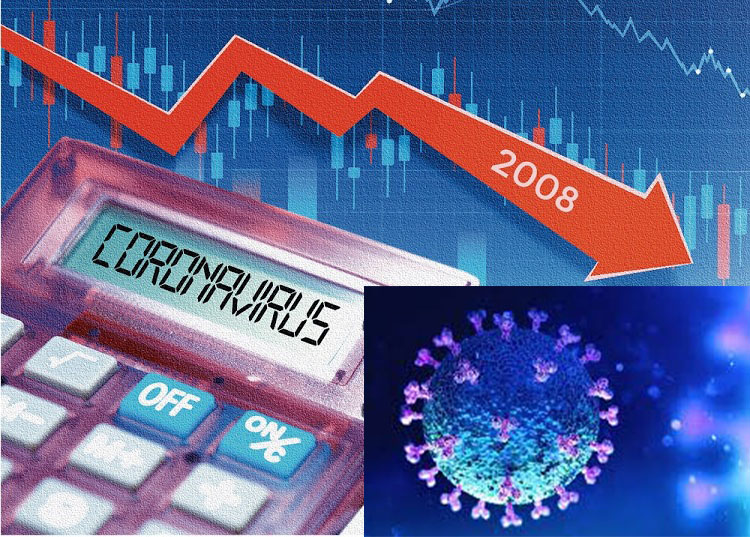[et_pb_section fb_built=”1″ admin_label=”section” _builder_version=”3.22″][et_pb_row admin_label=”row” _builder_version=”4.4.5″ background_size=”initial” background_position=”top_left” background_repeat=”repeat”][et_pb_column type=”4_4″ _builder_version=”3.25″ custom_padding=”|||” custom_padding__hover=”|||”][et_pb_text admin_label=”Text” _builder_version=”4.4.5″ background_size=”initial” background_position=”top_left” background_repeat=”repeat”]
In modern conditions, many platforms are discussing the spheres of the impact of the crisis caused by the global pandemic of “COVID 19” and the financial crisis recorded in 2008, and consequently the extent of its impact on economic growth. In this context, I consider it necessary to briefly present the spheres of the impact of these two crises and their peculiarities, accentuating the causal links. The 2008 financial crisis is the worst economic disaster since the Great Depression of 1929, and it occurred despite the Federal Reserve (Fed) and the Treasury Department’s efforts to prevent it. But now, there are many opinions that the COVID-19 recession will be the deepest since 1945-46, and more than twice as deep as the recession associated with the 2007-09 global financial crisis.
The financial crisis began in 2007 with depreciation in the subprime mortgage market in the United States, and it developed into an international banking crisis with the collapse of the investment bank Lehman Brothers on September 15, 2008. The financial crisis rapidly developed and spread into a global economic shock. Economies worldwide slowed during this period due to tightening credit and drops in international trade. At the onset of the financial crisis, policymakers of all four countries thought that they could be decoupled from the crisis, as their banks kept a conservative model and did not invest deeply in high-risk securities or complex instruments. The above-mentioned negative events led to a number of consequences in the real sector of the economy:
- decline in production;
- reduction of international trade, both in terms of imports and exports;
- reduction of investments and suspension of investment projects.
Anyway, it should be noted that any crisis is a reduction in national production, which as a result has a high level of unemployment: in 2008-2009 210 million people.
During the past four months, the COVID-19 pandemic has intensified and expanded in terms of its global reach, with huge impacts on public health and unprecedented shocks to economies and labor markets. It is the worst global crisis since the Second World War. Early estimates predicted that, should the virus become a global pandemic, most major economies will lose at least 2.4 percent of the value their gross domestic product (GDP) over 2020, leading economists to already reduce their 2020 forecasts of global economic growth down from around 3.0 percent to 2.4 percent. To put this number in perspective, global GDP was estimated at around 86.6 trillion U.S. dollars in 2019 – meaning that just a 0.4 percent drop in economic growth amounts to almost 3.5 trillion U.S. dollars in lost economic output.
We want to notice that the only reason for today’s economic crisis based on the global pandemic is the “COVID 19” virus, which was originated in the healthcare sector and has an indefinite uncertainty. A new measure of economic uncertainty related to pandemics and other disease outbreaks finds that uncertainty around the coronavirus is exceptionally high and is much higher than in past outbreaks. To quantify uncertainty related to the coronavirus crisis and compare it with previous pandemics and epidemics, it was developed the World Pandemic Uncertainty Index (WPUI)- a sub-index of the World Uncertainty Index-for 143 countries starting in 1996.
However, as we mentioned above, the causes of this crisis came from the healthcare system, which is the basis for the development and use of special anti-crisis methods.
by Svetlana Dallaqyan
[/et_pb_text][/et_pb_column][/et_pb_row][/et_pb_section]

